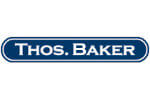Furniture and Home Goods
A Unified Commerce Platform For Furniture and Home Goods Companies, Like You
Over 21,000 customers around the world are transforming their businesses with NetSuite. From the manufacturing plant to the warehouse to your local furniture store showroom, NetSuite has the product functionality and industry expertise you need for long-term success.









Efficiently manage the complexities of your furniture and home goods business:
Real-time, cross channel Inventory visibility
Streamlined order management and procurement processes
Empowered sales associates and customer service
Intelligent delivery scheduling
our order processing, our fulfillment, our WMS, and how we
communicate with our customers. We can have all the flexibility in the
world getting all of our data in NetSuite.”
experience that drives customer satisfaction and repeat
business while streamlining our operational business
processes.”
NetSuite
Thos. Baker
insanely flexible and has allowed us to grow and add new
locations without ever pausing.”
Jonathan Adler
RUN YOUR BUSINESS ON A SINGLE, TRUE CLOUD PLATFORM
Rid yourself of multiple, disparate applications and bring your data into one customizable system with visibility into your furniture showrooms, outlet centers, distribution center and ecommerce channels.
KNOW YOUR OPERATIONS LIKE NEVER BEFORE
Gain insight from data gathered across your organization and empower your employees with the information they need from dashboards and tools to increase productivity.
GET A 360-DEGREE VIEW OF YOUR CUSTOMERS
Record every interaction immediately to provide the best customer service, from marketing campaigns to sales to the delivery experience to service and support in a single searchable system—from marketing to selling to service and support.
ENGAGE YOUR CUSTOMERS EVERYWHERE
Deliver true omnichannel shopping and service experiences across web, mobile, in-store and call center.




























